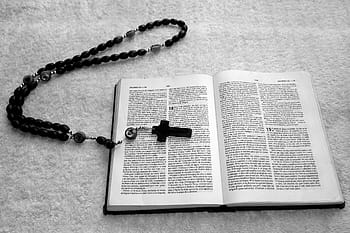Abstain from every form of evil.
I Thessalonians 5:22
It seems that our world is dominated by negativity. The newspaper, news shows, and magazines are filled with it. So are our conversations. Life is like the scales of justice. Good competes with evil. Keeping the scales with more good than evil is hard. Especially when the majority of voices are discouraging.
Some of the evil that happens to us we have no choice in. We are all victims to the bad mistakes of others or the ill-intent of others. However, some of the evil that befalls us is of our own making. For instance, we have the freedom to decide to use foul language or gossip. We choose to bring evil to conversations. We choose to make mistakes which potentially harm others. And so staying away from evil is to some degree a personal choice. St. Paul reminds us to abstain, to conscientiously choose to go away from evil things.
I remember years ago I went to confession. There was no need for a lecture from my Spiritual Father. The things I was doing wrong; I knew they were wrong. I didn’t need him to tell me they were wrong. I remember his advice to me that day was very simple: “You know what’s right, and you know what’s wrong. Stop doing wrong and start doing right.”
Most of the time, we know right from wrong. I supposed sometimes we come to a fork in the road and we truly do not know what is the right thing to do. However, that is not the majority of the time. The majority of the time, we know right from wrong. We know which is the right fork to take in the road. And our choice to take the wrong road is just that, a choice.
We’ve addressed questions like “Is it smart?” and “Is it safe?” when making good choices. Here are some other questions to reflect on as we think about choosing good and avoiding evil.
Is it going to hurt someone unnecessarily? We know that only good things come from God. Hurting someone is not a good thing. Not all kinds of hurt are bad. For instance, when we correct our children, it might hurt their feelings, but it is necessary to correct a wrong or dangerous behavior. If the intention is to correct, that is different than an intention to hurt someone. Most of us know when we do something if it is going to intentionally hurt someone.
Is it a sin? In other words, is what we doing violating God’s law? The Ten Commandments are pretty clear about not stealing, or bearing false witness, murdering, committing adultery, coveting and other things.
Does it show love? Christ’s two greatest commandments were to love God and to love one another. In other words, to love. Sin can be described as failure to love. One can show love even when correcting another. For instance, the example of correcting a child. We yell at a child not to touch a hot stove out of love and concern for their safety, not to destroy their sense of self-worth. If what we are doing is not showing love and concern, then it is probably not a good choice.
Is it going to have a negative consequence for me or someone else? Many times we do not think out what we are doing. If what we are going to do could have a negative consequence down the road for ourselves or someone else, it might not be the best choice. We’ll explore this question more in an upcoming reflection.
I Thessalonians 5:22 reminds us to abstain from evil. That is pretty straight forward. And the best way to abstain from evil is to make Godly choices.
Lord, thank You for the many gifts that You have given to me. Thank You for the Holy Spirit, which is continuously at work in the world. Help me to allow the Holy Spirit to be at work in my life. Help me to be a good listener, to see the good in others and to seek to do good on my own. Give me the discipline to abstain from evil. Help me to glorify You in all that I do today. Amen.
As you make choices today, ask yourself: Is it going to hurt someone unnecessarily? Is it a sin? Does it show love? Is it going to have a negative consequence for me or someone else?




